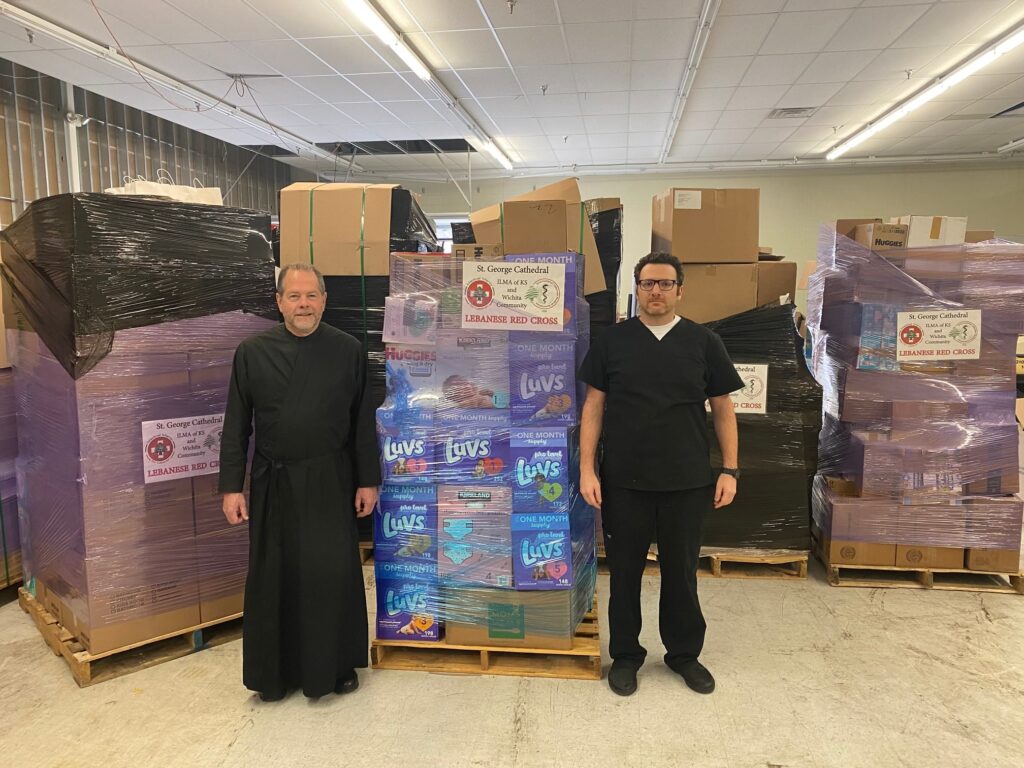by Subdeacon Peter Samore
Antiochian Orthodox Christian Archdiocese of North America
The word “peace” appears no fewer than 33 times throughout the Divine Liturgy of the Orthodox Church. The first words of the deacon in the “litany of peace” are “In peace, let us pray to the Lord.” He goes on to pray for the gift of peace for God’s churches and His world. When blessing the people, the bishop or priest exclaims, “Peace be to all.” The people respond, “And to your spirit.” They are asking God for His peace upon the leaders of His church.
It’s no coincidence that the children of the Greek Orthodox Patriarchate of Antioch and All the East (based in Damascus, Syria) and her archdioceses in the Middle East and around the world – like the Antiochian Orthodox Christian Archdiocese of North America – constantly beg God for this blessing. Peace is abundant from Him, but a rare commodity in this world, including in the Middle East.
Right after persistent prayer for peace, Antiochian Orthodox Christians are called to abstain from anything non-peaceful and unprofitable. The leader of our Archdiocese, His Eminence Metropolitan Joseph, often tells his church about the example set by his mentor and spiritual father, His Beatitude Patriarch Ignatius IV (1920-2012). “During the chaos of the Lebanese civil war (1975-90), he distinguished himself from the other religious leaders of the region by rising above the disastrous sectarianism that was raging and stoking violence at the time. He was the one that all sides knew could be trusted because his only allegiance was to Christ.”
The incumbent of the Church of Antioch, His Beatitude Patriarch John X, constantly calls upon leaders of the regional governments to put aside sectarian differences and political interests to stabilize the region so that their people – Christians, Muslims, and others – can have peace and stability not only to build up their nations but their own places of worship.
Right after setting an example, Orthodox Christians with the spiritual heritage of Antioch – where the disciples were first called Christians (Acts 11:26) – then work to achieve peace. They do this by feeding the hungry, clothing the naked, and visiting and healing the sick (Matthew 25:35-36). The Church of Antioch’s archdiocese in Beirut, Lebanon, owns and operates the famed St. George Hospital, which set up emergency beds in its parking lot to treat victims who were badly hurt by the explosion on August 4, 2020. Doctors and nurses worked ceaselessly to care for them, even as their own hospital suffered severe damage. The Antiochian Archdiocese of North America raised more than $1 million to help with ongoing recovery and rebuilding efforts.
The Patriarchate of Antioch owns and operates a hospital in El-Hosn, Syria, in the area known as the “Valley of the Christians.” It constantly cared for victims during the senseless war over the last decade. Our archdiocese assists the Patriarchate’s Department of Ecumenical Relationships and Development with humanitarian efforts to rebuild churches, schools, and homes, as well as providing food and medical care.





Palestinian Orthodox Christians living in the West Bank and Gaza Strip have their own sets of struggles living in occupation. Those that immigrate to the U.S. and Canada attend our churches, so we are very sensitive to their needs. Our archdiocese has helped them in many ways, including financially, over the years.
Since its inception in 1895, the Antiochian Archdiocese has welcomed tens of thousands of Orthodox Christian immigrants from the Middle East, helping them set up homes and livelihoods. They, in turn, built our first churches; their descendants and the Americans and Canadians who have converted to the Orthodox Faith build our churches and institutions today. These communities then send money and resources “back home” to their families and churches in Lebanon, Syria, and other lands. The Archdiocese provides liturgical texts for worship in English – and in Arabic for the newcomers and refugees – so that they can all pray for precious peace in their native tongues.
Of course, we must all pray for peace in North America, the Middle East, and the entire world. Then, we must act. This action includes connecting with charitable groups here (like International Orthodox Christian Charities) and abroad (like St. George Hospital of Beirut) to send our lifesaving aid to our brothers and sisters in Jesus Christ. We must also learn more about the complexities of the Middle East so that we can teach against misperceptions. Some Americans do not realize that Christians still live in the Middle East – indigenous Christians have lived there continually since the time of Christ – and they need our attention and support. Seek out the Antiochian Archdiocese and the Middle East Christians who have crossed onto our shores for their stories, perspectives, and expertise. Finally, we must be peacemakers in our own churches and society, solving problems and focusing on our Lord himself so that he can call us his children (Matthew 5:9).
Subdeacon Peter Samore is the Director of Communications for the Antiochian Orthodox Christian Archdiocese of North America. To learn more about the Antiochian Orthodox Christian Church in North American, please visit their website.
Any views or opinions contained herein are solely those of the author and do not necessarily represent those of Churches for Middle East Peace (CMEP).

